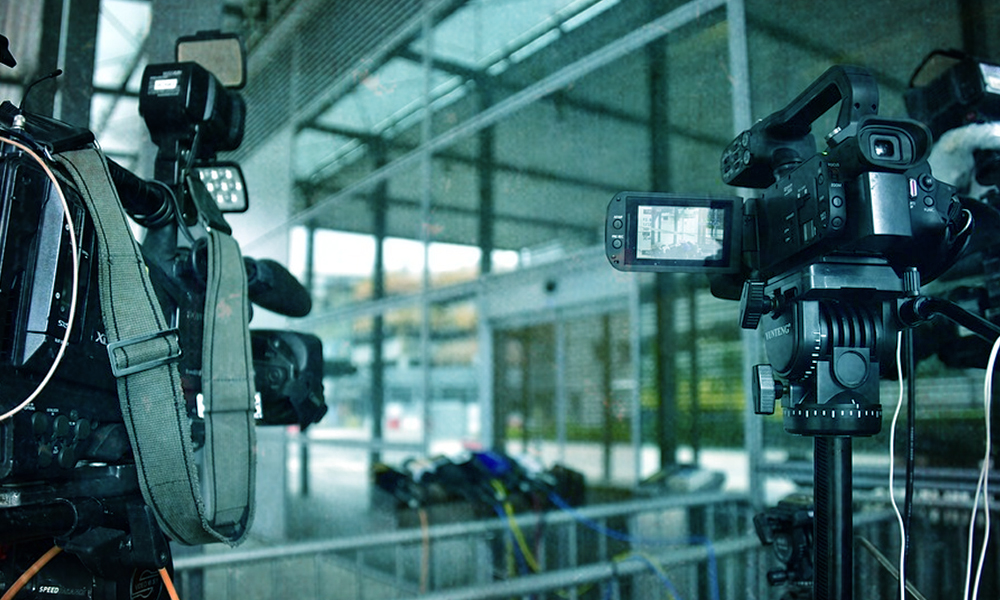
Image Credit: Pixabay
Counted As One Of The World's Most Dangerous Countries For Journalists, India Ranks 142 In World Press Freedom Index
Writer: Susmita Modak
Always love to raise the unraised matter. In a world of worries, she is always ready to come over her comfort zone and to take the step ahead of spreading awareness.
India, 22 April 2021 8:59 AM GMT
Editor : Kishan Rao A S |
He believes in the philosophy of it is not a race to win but to create his own track. He has his opinions and realizes that every day is a learning.
Creatives : Yogesh M Y
A video gamer and graphics designing geek. Likes to explore dimensions of skill enhancement and adaptive to changing environment with the quest to try and learn something new.
The coordinated hate campaigns waged on social networks against journalists who dare to speak or write about subjects that annoy Hindutva followers are terrifying and include calls for the journalists concerned to be murdered,” says the report.
Reporters Without Borders published its 2021 World Press Freedom Index on 20 April 2021, and for the second straight year, India remained at the rank of 142 out of 180 countries.
India continued to be counted among the countries categorized as "bad" for journalism and referred to as one of the most dangerous countries for journalists who are trying to do their jobs properly. India is tagged as "bad" with Brazil, Mexico, and Russia. In 2016, India stood at 133, and after that, it has consistently seen a downfall in its rank.
The report released on Tuesday ranked 180 countries. The countries that continue to hold the first three spots were Norway, Finland, and Denmark. India's neighbouring countries like Nepal stands at 106, Sri Lanka at 127, Myanmar before the military coup stood at 140, Pakistan at 145, and Bangladesh at 152. From the bottom, China stands at 177, Turkmenistan at 178, North Korea at 179, and Eritrea ranks last.
The report says that Bharatiya Janata Party and their Hindutva ideology supporters have created an intimidating environment for the journalists by branding them as "anti-national" or "anti-state". The report also said that Prime Minister Narendra Modi, as head of the government, has tightened his grip on media.
India is one of the most dangerous places for journalists to do their jobs in an adequate way. The statement can be justified by the incident when "four journalists were killed in connection of their work in 2020".
The report says that after the Bharatiya Janata Party won the national election in 2019, pressure has increased on the media "to toe the Hindu nationalist government's line". The journalists had to face all kinds of attacks, including police violence against reporters, ambushes by political activists, and reprisals instigated by criminal groups or corrupt local officials.
"Indians who espouse Hindutva, the ideology that gave rise to radical right-wing Hindu nationalism, are trying to purge all manifestations of 'anti-national' thought from the public debate. The coordinated hate campaigns waged on social networks against journalists who dare to speak or write about subjects that annoy Hindutva followers are terrifying and include calls for the journalists concerned to be murdered," reported The Indian Express.
The report also highlighted the way that the Indian government in 2020 took advantage of the pandemic to step up their control of news coverage by prosecuting journalists. It has mentioned that the situation in Kashmir is "still very worrying", where journalists are continued to be harassed by police and paramilitary forces, which it says are due to "utterly Orwellian content regulations".
The report states about the violent social media campaigns led by the Bharatiya Janata Party to the crucial journalists to 'public condemnation', and this includes that they even issue them a threat to death, especially if they are women.
"Arbitrary nature of Twitter's algorithms also resulted in brutal censorship" highlighting that "after being bombarded with complaints generated by troll armies about The Kashmir Walla magazine, Twitter suddenly suspended its account without any possibility of the appeal", the report shows the restraining of freedom of expression on social media.
The 2021 World Press Freedom Index report shows that journalism is the main vaccine against disinformation, ranked by the organization in 73% of the 180 countries, which is completely or partially blocked. Through the report, it can be esteemed that only 12 countries among the 180 countries are offering a favourable environment for journalists.
 All section
All section














